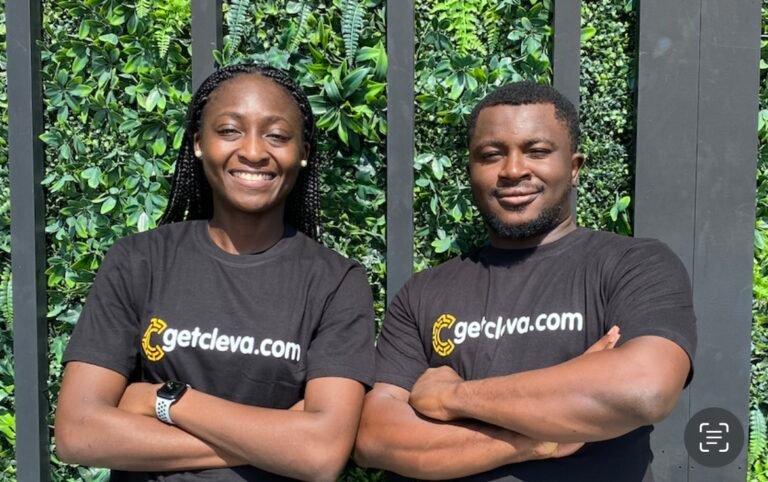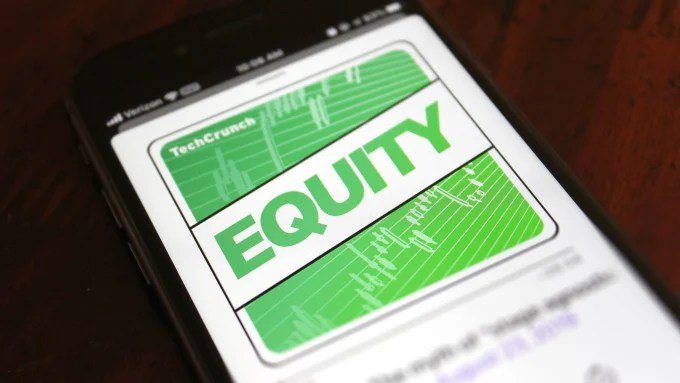
Nigerian fintech Cleva, focused on creating a banking platform for African individuals and businesses to receive international payments by opening USD accounts, has raised $1.5 million in pre-seed funding.
“The team is uniquely qualified to address this given their experience building banking products at Stripe and robust platforms at AWS.
Both founders share a strong connection with the African market.
(It’s worth highlighting that while Cleva exclusively provides USD accounts, other players offer GBP and EUR accounts.)
Meanwhile, the YC-backed startup, which generates revenue when users swap and exchange their funds (in USD accounts) for the local currency (in naira for now), also charges a 0.9% fee on deposits into customers’ USD accounts.

VinFast, Vietnam’s electric vehicle manufacturer, plans to initially invest $500 million to set up an integrated facility in India and break into the world’s third-largest automobile market.
The memorandum of understanding with the state government of Tamil Nadu, unveiled on Saturday, earmarks an investment of up to $2 billion, the company said without giving a concrete timeframe.
“We are delighted that VinFast has chosen to invest in Tamil Nadu to establish its integrated EV facility.
Nonetheless, India has been an attractive market for global EV players as the country aims to have 30% electrification by 2030.
Its India deal announcement follows VinFast naming its founder and biggest backer, Pham Nhat Voung, as CEO earlier on Saturday.

Gbike acquired a local micromobility platform called ZET from Hyundai Motor for an undisclosed amount last year to bolster its technological synergies.
Gbike posted an EBITDA of $40 million and revenue of $13.7 million in 2022, Yoon said.
“Based on this fully integrated capability, we set out our vision to innovate the micromobility ecosystem through battery-[swapping] infrastructure.
One of the things that set Gbike apart from its competitors is its capability to build its own vehicles — e-scooters, e-bikes and batteries, Yoon mentioned.
Gbike launched its own-developed e-bikes in May last year and now operates a fleet of 35,000 e-bikes.

Even though news of potential interest rate cuts has led to optimism that the IPO window might reopen and things might improve in Startup Land, it appears the global venture capital market has yet to level-out: Early data from PitchBook indicates global VC investment in startups continued to slide in the fourth quarter of 2023.
The Exchange explores startups, markets and money.
Read it every morning on TechCrunch+ or get The Exchange newsletter every Saturday.
While things are down sharply in the United States compared to the heady days of 2021, investment trends seem to have largely reached a new normal — U.S. startups raised $37.5 billion in Q4 2023, which wasn’t much less than the $37.6 billion they raised in Q2 2023 and $39.8 billion in Q4 2022.
In contrast, here’s what’s happening globally:We are still going down, folks!

Happy New Year, and welcome to the 78th installment of Pitch Deck Teardown!
This week, we are taking a closer look at Pepper Bio‘s seed pitch deck that landed the company $6.5 million.
Unlike CancerVax (which I ripped apart in a previous teardown for being completely unbelievable), Pepper Bio has a strong team and a lot of promise.
In a world that’s often laden with deeply technical language, Pepper Bio sets itself apart for a moment.
In the rest of this teardown, we’ll look at three things Pepper Bio could have improved or done differently, along with its full pitch deck!

Are megafunds squeezing out small VCs and distorting the seed market?
Hello, and welcome back to Equity, a podcast about the business of startups, where we unpack the numbers and nuance behind the headlines.
This is our Friday show, and today, Mary Ann Azevedo and Alex Wilhelm took on the week’s biggest tech, startup and venture capital news.
Here’s what we got into:And that’s Equity for this week!
For episode transcripts and more, head to Equity’s Simplecast website.

At the end of 2022, like many, I made some predictions about what 2023 would bring to the technology investing ecosystem.
AI and data continue to dominate the funding landscape.
U.S. VC deals fall from $275 billion in 2022 to $200 billion in 2023, and sustain at about $200-$220 billion next year.
Valuations will remain relatively steady, except for AI businesses, which will command a premium of about 10-15% to the market.
While VC deals fell dramatically between 2022 and 2023, 2024 won’t see as sharp of a decline.

Hopes that it would become easier for startups to raise capital in 2023 were left unmet as the year ended.
The Exchange explores startups, markets and money.
New data from business database PitchBook paints a modestly dim picture of venture capital investment activity in the fourth quarter of 2023.
Per PitchBook’s preliminary count, startups in the U.S. raised 2,879 rounds worth about $37.5 billion in the fourth quarter — the lowest quarterly deal value since Q3 2019, and the lowest deal count since Q4 2017.
Across stages, venture capital investment activity in the United States is flagging, and this extends past aggregate figures — for example, we saw less total capital invested in U.S. startups last year than in 2020.

It’s been a rough few years for startups looking to exit, but companies, especially late-stage startups, can’t stay private forever.
When the exit market didn’t open back up in 2023, as many hoped after a very quiet 2022, investors and founders alike decided that 2024 was the year that the exit market would defrost.
The vast majority of investors responded that they think exit volume will be higher in 2024 than in 2023 and 2022, but there wasn’t consensus on what those exits would look like.
Some investors are more optimistic about M&A in 2024, while others think we will see a rebound in the IPO market.
While most respondents answered this survey before the Adobe-Figma deal dissolved, many VCs acknowledged that startups looking to pursue that route this year will have to be conscious of the current regulatory environment anyway.

As 2023 comes to an end, it is only natural to reflect on what happened in the markets we cover.
But when it comes to cannabis, the answer is “not much,” which won’t help cannabis startups that are already facing a challenging funding environment.
Namely, 2023 wasn’t the year that Germany legalized adult recreational cannabis use.
That matters because that’s not what the legal cannabis market once anticipated, and whenever there is misalignment between reality and what investors expected, especially when public companies boosted said expectations, it is rarely good news.
“Companies have spent significant capital in preparation for a sizable commercial market in Germany.













